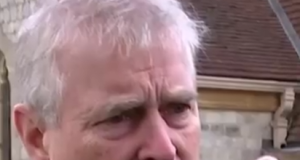WASHINGTON (Reuters) - Prosecutors in the corruption case involving the late Alaska Senator Ted Stevens repeatedly hid evidence that could have exonerated him, according to an investigative report released on Thursday that found misconduct by Justice Department lawyers.
The prosecutors intentionally withheld and concealed information from Stevens' defense lawyers that included witness statements, key details that could have undermined prosecutors' star witnesses and allowed false testimony to be presented during his 2008 trial, the report said.
It criticized the Justice Department's failure to properly supervise the trial team and said prosecutors covered up information that their chief witness, Bill Allen, had a sexual relationship with a 15-year-old prostitute.
The report also zeroed in on the failure by prosecutors to reveal conflicting recollections by Allen about notes Stevens wrote saying he wanted to pay for improvements to his house that were at the center of the charges against him, and false statements made by Allen during the trial.
Stevens' main defense attorney, Brendan Sullivan, "was not aware when he gave his opening statement, and never learned during or after the trial, that the prosecutors possessed evidence that directly corroborated Senator Stevens' defense," the report said.
Stevens, who died in a plane crash in 2010 and had been the longest-serving Republican senator in U.S. history, had been charged in 2008 with seven counts of lying on a Senate disclosure form to conceal $250,000 in gifts - primarily the improvements to his Alaska home - from an Alaska oil executive and other friends.
He was convicted days before the 2008 election and lost his bid for re-election, helping Democrats take control of the Senate.
The judge in the case in 2009 overturned the conviction because of evidence that surfaced showing prosecutors failed to turn over evidence, as required under law, that could have helped Stevens' lawyers defend him.
U.S. Attorney General Eric Holder, weeks after taking office in 2009, had the case dismissed.
The judge, Emmet Sullivan, then ordered an independent attorney, Henry Schuelke, to conduct an investigation and that 525-page exhaustive report was released on Thursday.
Schuelke did not recommend that criminal charges be brought against any of the Justice Department prosecutors for the misconduct.
One of the prosecutors on the case, Nicholas Marsh, committed suicide in September 2010 amid the investigation. The report said it was expressing no conclusion about his conduct because of his death.
Holder said last week that an internal Justice Department report will be forthcoming soon and recommends sanctions, though he did not elaborate. Some U.S. senators have complained that several of the prosecutors and attorneys involved in the botched case still remain in the Justice Department.
"A miscarriage of justice would have been averted had the government complied with the law," Stevens' lawyers Sullivan and Robert Cary said in a statement. "Instead, the government proceeded by any means necessary to win their case. In the process, the government violated the United States Constitution and the ethical rules of the legal profession."
Catherine Stevens, the senator's wife, said his family "continues to be shocked by the depth and breadth of the government's misconduct" and added, "A team of federal prosecutors denied him the constitutional rights guaranteed to all our citizens."
Spokeswoman Laura Sweeney said the Justice Department cooperated fully with the investigation into the prosecution and provided information throughout the process, but added that such occurrences of prosecutorial misconduct are rare.
"We know that justice is served only when all parties adhere to the rules and case law that governs our criminal justice system," she said. Sweeney also said that steps have since been taken to ensure prosecutors comply with obligations to turn over evidence.
Kenneth Wainstein, an attorney for one of the federal prosecutors, Joe Bottini, who was under investigation for the botched case, said that his client "simply made mistakes" and that they had been "miscast as intentional criminal misconduct."
"That finding of intentional misconduct is completely unsupported by the evidence, and is the product of an investigative process that was marked by selective fact-finding and faulty legal analysis," Wainstein said in a letter to Holder.
(Reporting By James Vicini and Jeremy Pelofsky; Editing by Vicki Allen and Philip Barbara)




